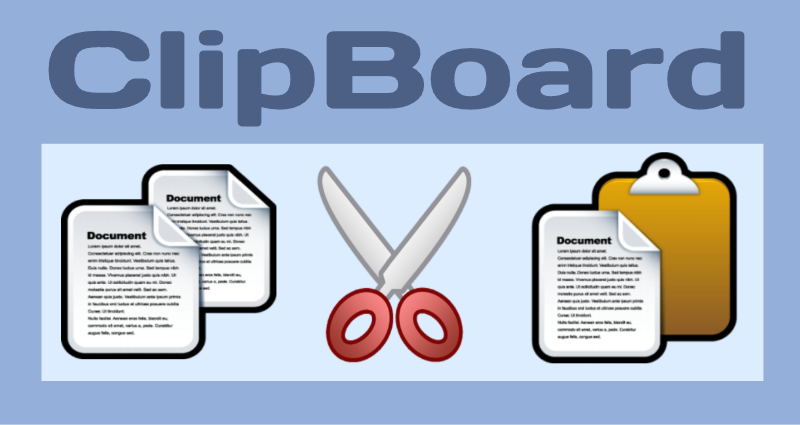Accounting Dictionary - Letter B

- Balance sheet: A financial statement that presents a company's assets, liabilities, and equity at a specific point in time.
- Bookkeeping: The process of recording and maintaining a company's financial transactions in a systematic and organized manner.
- Budget: A detailed plan outlining projected income and expenses over a specific period, used to guide financial decisions.
- Bank reconciliation: The process of comparing a company's bank statement with its internal financial records to ensure accuracy and identify any discrepancies.
- Bankruptcy: A legal process where a company is unable to pay its debts and is declared insolvent, resulting in the liquidation of its assets.
- Bad debt: An amount owed to a company that is unlikely to be collected, often written off as an expense.
- Bond: A type of debt security issued by a company to raise capital, typically with a fixed interest rate and maturity date.
- Break-even point: The point at which a company's revenue equals its total fixed and variable costs, resulting in neither profit nor loss.
- Barter: A transaction where goods or services are exchanged for other goods or services, rather than for cash.
- Basis: The original cost or value of an asset, used to calculate gains or losses upon sale.
- Benchmark: A standard or reference point used to measure performance or compare financial data.
- Bill of lading: A document that serves as a receipt for goods shipped and outlines the terms of the shipment.
- Blue chip: A high-value stock or investment, often considered to be low-risk and stable.
- Book value: The value of an asset or company as recorded on the balance sheet, often different from its market value.
- Bottom line: A company's net income or profit, often used to measure its financial performance.
- Bonds payable: A type of liability that represents the amount a company owes to bondholders.
- Borrowing: The act of obtaining funds from a lender, often with interest and repayment terms.
- Branch accounting: A system of accounting used by companies with multiple branches or locations, to track and report financial data separately.
- Broker: An intermediary who facilitates transactions between buyers and sellers, often in financial markets.
- Business entity: A separate and distinct organization, such as a corporation or partnership, that operates for profit.
- Balance: The state of being equal or in equilibrium, often used to describe a company's financial position.
- Bank statement: A document provided by a bank that shows a company's account activity and balance.
- Bankrupt: A company or individual that has been declared insolvent and is undergoing bankruptcy proceedings.
- Bearer bond: A type of bond that can be transferred without endorsement, often used to raise capital.
- Beneficiary: A person or organization that receives benefits or payments from a trust or estate.
- Bequeath: To leave or give property or assets to someone through a will or estate.
- Beta: A measure of a stock's volatility or risk, often used to compare investments.
- Bills of exchange: A type of negotiable instrument that represents a promise to pay a specific amount on a specific date.
- Blanket bond: A type of insurance policy that covers multiple assets or risks under a single policy.
- Blockchain: A decentralized and digital ledger that records transactions and data in a secure and transparent manner.
- Board of directors: A group of individuals elected or appointed to oversee and make decisions for a company.
- Booked: To record or enter a transaction into a company's financial records.
- Breakage: The amount of money or assets that are lost or unaccounted for, often due to errors or discrepancies.
- Budgetary control: The process of monitoring and controlling a company's expenses and revenues to ensure they are within budget.
- Burn rate: The rate at which a company is spending its cash reserves, often used to measure its financial health.
- Business cycle: The fluctuations in economic activity that occur over time, often used to describe the ups and downs of a company's financial performance.
- Business valuation: The process of determining the value of a company or business, often used for mergers and acquisitions or investment purposes.
- Buy-sell agreement: A contract between business partners or shareholders that outlines the terms of buying or selling shares of the company.
- Bylaws: A set of rules or regulations that govern the internal operations of a company.
- Balance brought forward: The amount of money or assets that are carried over from one accounting period to the next.
- Bank draft: A type of payment instrument that is drawn on a bank's account, often used for international transactions.
- Bank overdraft: A situation where a company's bank account balance is negative, often due to excessive withdrawals or insufficient funds.
- Basket purchase: A type of acquisition where a company purchases multiple assets or businesses at the same time.
- Bearer instrument: A type of security or instrument that can be transferred without endorsement, often used to raise capital.
- Billable hours: The amount of time spent by employees or consultants on a project or task that can be billed to clients.
- Blank entry: A journal entry that is made to correct an error or omission in a company's financial records.
- Bond discount: The difference between the face value of a bond and its market value, often used to calculate interest income.
- Bond premium: The difference between the face value of a bond and its market value, often used to calculate interest income.
- Bonus: A payment or reward made to employees or executives for meeting or exceeding performance targets.
- Book inventory: A company's inventory of goods or materials that are recorded in its financial records.
- Book of original entry: A journal or ledger that records a company's financial transactions in chronological order.
- Bookkeeper: An individual responsible for recording and maintaining a company's financial transactions.
- Bridge loan: A type of short-term loan that is used to finance a company's operations or projects until more permanent financing can be secured.
- Burden rate: The rate at which a company's costs or expenses are allocated to its products or services.
- Business interruption insurance: A type of insurance policy that covers a company's losses due to unexpected events or disruptions.
- Buy-back: A situation where a company repurchases its own shares or assets, often to reduce the number of outstanding shares or to increase shareholder value.
- Balloon payment: A large payment made at the end of a loan or lease, often used to reduce the monthly payments.
- Bank charges: Fees or charges imposed by a bank on a company's account, often for services such as overdrafts or wire transfers.
- Bank credit: A type of loan or credit facility provided by a bank to a company, often used to finance its operations or projects.
- Base year: A reference year used to calculate inflation or economic growth, often used in financial analysis and planning.
- Beneficial owner: The individual or organization that ultimately benefits from a trust or estate, often used in tax planning and estate planning.
- Bilateral contract: A contract between two parties, often used in business transactions and agreements.
- Bill of materials: A list of materials or components required to produce a product or service.
- Billing cycle: The period of time between billing a customer and receiving payment, often used in accounts receivable management.
- Black economy: A portion of the economy that operates outside of the law or without reporting income, often used to describe tax evasion or money laundering.
- Blanket insurance: A type of insurance policy that covers multiple assets or risks under a single policy.
- Blocked currency: A currency that is restricted or blocked by a government or financial institution, often due to economic sanctions or trade restrictions.
- Bonded debt: A type of debt that is secured by a bond or other collateral, often used to finance large projects or infrastructure.
- Booking: The process of recording or entering a transaction into a company's financial records.
- Borrowing base: The amount of money or assets that a company can borrow from a lender, often based on its creditworthiness and collateral.
- Brand equity: The value of a company's brand or reputation, often used in marketing and advertising.
- Breakup fee: A fee paid by a company to terminate a contract or agreement, often used in mergers and acquisitions.
- Broker-dealer: A firm or individual that buys and sells securities on behalf of clients, often used in financial markets.
- Built-in gain: A gain or profit that is built into a company's financial statements, often due to the appreciation of assets or investments.
- Bulk sale: A sale of a large quantity of goods or assets, often used in business transactions and agreements.
- Business combination: A merger or acquisition of two or more companies, often used to expand operations or increase market share.
- Business expense: An expense incurred by a company in the course of its operations, often used in tax planning and financial reporting.
- Business plan: A document that outlines a company's goals, objectives, and strategies for achieving success, often used in entrepreneurship and small business management.






